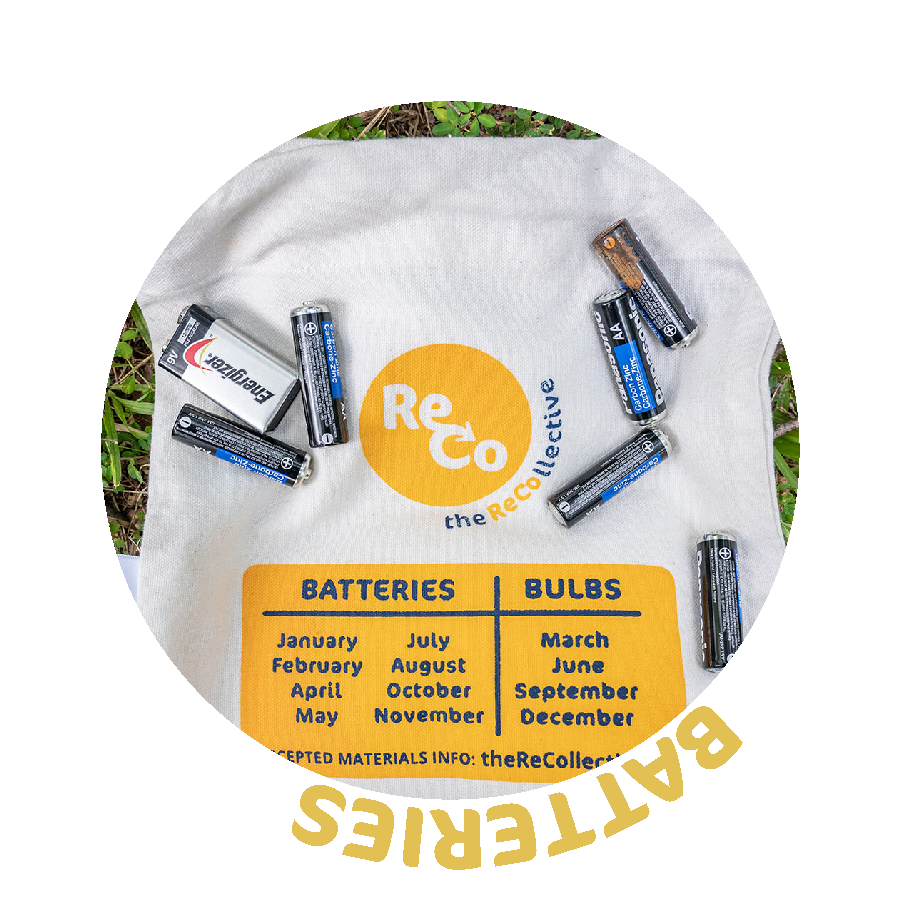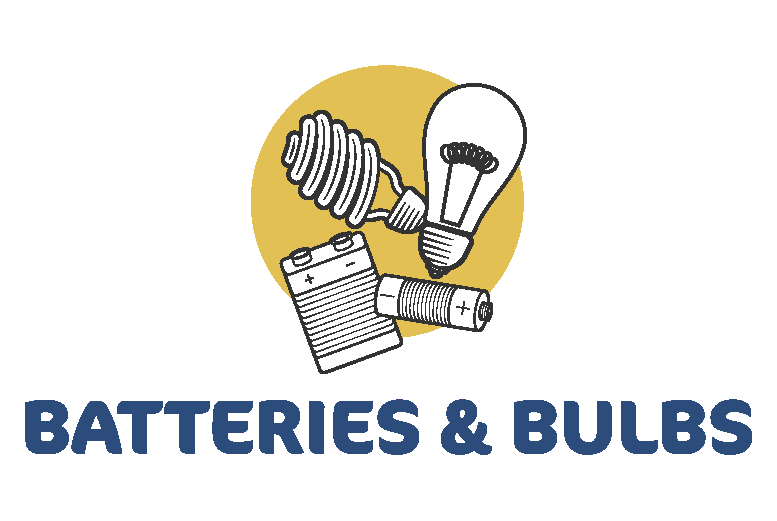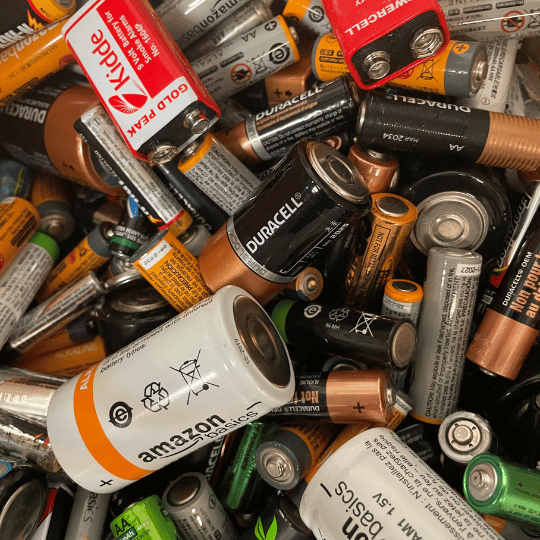Battery Recycling With The ReCollective

The ReCollective Recycles Batteries
Recycling batteries helps keep toxic metals out of landfills and helps prevent ground water contamination. However, not all batteries are created equal, and understanding what can and cannot be recycled is key to ensuring your efforts make a difference. That’s where ReCollective steps in!
At The ReCollective, we recycle batteries across the Triangle, NC, including Durham, Raleigh, Cary, and Chapel Hill, as well as through our Almost Anything Bag Mailback program. Batteries are collected eight months out of the year in addition to our other core hard-to-recycle materials.

Accepted Materials
Household batteries
January, February, April, May, July, August, October, November
- Alkaline
- Nickel Cadmium (NiCd)
- Nickel Metal Hydride (NiMH)
- Lithium-Ion
- Button Cells
- Rechargeable
- Small electronics batteries
IMPORTANT: please put tape on the terminals of any 9v or greater voltage battery as well as lithium and larger size batteries. ONLY Alkaline batteries are accepted in the Almost Anything Mailback bag.
Materials NOT Accepted
- Car batteries
- Lead-acid batteries
- Swollen or bulging batteries

How Does The ReCollective Recycle batteries?
We partner with Batteries Plus. Batteries are sent to facilities where metals and chemicals are recycled, and harmful materials are properly disposed of.
A Guide to Recycling Batteries: What You Need to Know
Batteries contain valuable materials like lead, cadmium, and mercury that can be harmful if they end up in landfills. Recycling ensures these materials are recovered and reused, minimizing environmental impact.
What Batteries The ReCollective Can Recycle
Household Batteries: These common batteries can be recycled with The ReCollective:
Alkaline Batteries: While generally safe to dispose of in regular trash, recycling is more eco-friendly.
Nickel Cadmium (NiCd) Batteries: Found in many rechargeable devices, these should be recycled and handled with care.
Nickel Metal Hydride (NiMH) Batteries: Often used in rechargeable electronics, NiMH batteries are recyclable like NiCd batteries.
Lithium-Ion Batteries: Common in modern devices, these should always be recycled to prevent environmental hazards.
Button Cells: Tiny batteries used in watches and hearing aids.
Rechargeable Batteries: Including many used in household electronics and tools.
Important: Always tape the terminals of 9-volt and larger batteries, as well as lithium batteries, to prevent short-circuiting.
What Batteries Not to Recycle With The ReCollective
Understanding what cannot be recycled helps prevent contamination and ensures safe disposal:
Car Batteries: Contain lead and acid, and must be recycled separately at designated facilities.
Lead-Acid Batteries: Found in vehicles and certain equipment, these require special handling due to their hazardous nature.
Swollen or Bulging Batteries: These are potentially dangerous and should be disposed of with special handling due to their hazardous nature.
How to Recycle Batteries
Collection: Use a designated battery bag or container to store used batteries until you’re ready to recycle them.
Preparation: Ensure batteries are properly prepared before recycling. Tape the terminals of any 9-volt and lithium batteries to avoid accidents.
